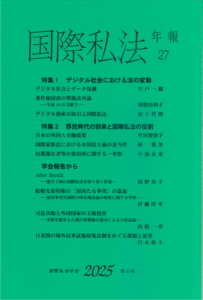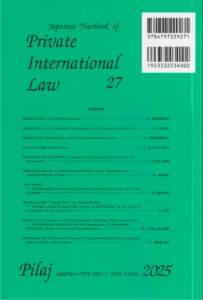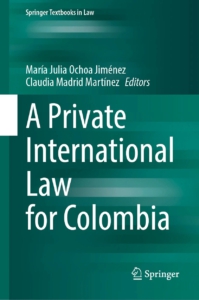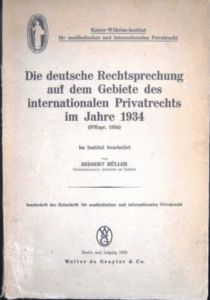Views
Court-to-court referrals and reciprocity between Chinese and Singapore courts
By Catherine Shen, Asian Business Law Institute
In 2023 Su 05 Xie Wai Ren No. 8 dated March 14, 2025, the Suzhou Intermediate People’s Court of Jiangsu Province in China (Suzhou Court) recognized and enforced civil judgment HC/S194/2022 under file number HC/JUD47/2023 by the Supreme Court of Singapore (Singapore Judgment). The judgment by the Suzhou Court (Suzhou Judgment) was announced in September 2025 by the Supreme People’s Court of China (SPC) as among the fifth batch of Belt and Road Initiative (BRI) model cases. Read more
CJEU, Case C-540/24, Cabris Investment: Jurisdiction Clause in Favour of EU Court is Subject to Art. 25 Brussels Ia even if both Parties are Domiciled in the Same Third State
By Salih Okur, University of Augsburg
On 9 October 2025, the CJEU, in Case C-540/24 (Cabris Investment), had to decide whether Art. 25 Brussels Ia applies to “an agreement conferring jurisdiction in which the contracting parties, who are domiciled in the United Kingdom and therefore (now) in a third State, agree that the courts of a Member State of the European Union are to have jurisdiction over disputes arising under that contract, falls within the scope of that provision, even if the underlying contract has no further connection with that Member State chosen as the place of jurisdiction.“
Unsurprisingly, the Court held that it does.
Pre-print article on SSRN on “Mirin” and the Future of Cross-Border Gender Recognition
I recently published the pre-print version of an article on SSRN that was accepted by the International Journal of Law, Policy and the Family. The article is called ““Mirin” and Beyond: Gender Identity and Private International Law in the EU“. The article is part of a special issue dealing with questions of gender identity that (probably) will come out at the beginning of 2026.
As it deals with matters of private international law (regarding gender identity) and the CJEU decision “Mirin”, I thought it might be interesting for the readers of this blog to get a short summary of the article. If it sparks your interest, of course, I would be glad if you consider reading the whole text – and to receive feedback and further thoughts on this topic. 🙂
News
27th Volume of the Japanese Yearbook of Private International Law (2025)


The 27th Volume (2025) of the Japanese Yearbook of Private International Law (JYPIL) (Kokusai Shiho Nenpo [Japanese]) published by the Private International Law Association of Japan (Kokusai Shiho Gakkai [Japanese]) (“PILAJ”) has recently been released.
This new volume features the following table of content.
The papers are published in Japanese; all links below direct to the papers’ English summaries.
Jiménez and Martínez on A Private International Law for Colombia

Colombian private international law research has been witnessing a notable period of renewed scholarly activity. Following a previous announcement on this blog of the publication of a volume dedicated to the Colombian Draft Project on Private International Law, a further significant contribution has now been published, this time offering a broader and more systematic perspective on the field. This new contribution takes the form of a book edited by María Julia Ochoa Jiménez (Loyola University) and Claudia Madrid Martínez (University of Antioquia), entitled “A Private International Law for Colombia”, published in the Springer Textbooks in Law series (Springer, 2025).
According to the publisher’s website, the book offers a “[c]omprehensive study of issues underlying PIL, particularly in Latin America and Colombia”, provides “[s]ystematical analysis of PIL rules in Colombia, allowing readers to understand how they deal with global issues”, and “[a]ddresses rules in force, critically examines them and, accordantly, presents and discusses a legislative proposal”. Read more
Quick and easy access to German case law in private international law – One year of ‘IPRspr 2.0’ (and almost 100 years of ‘IPRspr’)


Quick and easy access to German case law in private international law – One year of ‘IPRspr 2.0’ (and almost 100 years of ‘IPRspr’)
A comprehensive and carefully curated database providing free access to German court decisions on private international law – www.iprspr.de
Ralf Michaels/Jan Peter Schmidt



